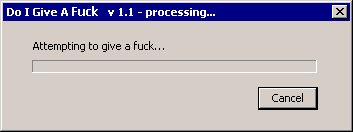EA has just recently given out more information on their upcoming EA AntiCheat (EAAC), not to be confused with Easy Anti-Cheat (EAC), because EA are apparently terribly at naming.
In their new Deep Dive, they went over various details about their new EAAC and how it will affect their games. The first big note is that it will be kernel-mode, which is usually something that doesn't play nicely (or at all) with Linux and so this could be some bad news for the Steam Deck too. Not only that, it's an anti-tamper tech too.
Take FIFA 22 for example, it's playable on Linux and has a "Playable" Steam Deck rating. However, FIFA 23 will be launching in October and guess what? It will have EA's new AntiCheat. So, this might mean it won't work at all.
It won't end up in every game from EA though, as they said in the post they will work with each studio to determine their needs. It also mentions for some titles they may only use "user-mode protections" (no kernel-level stuff) or just not have any at all.
A worrying trend though, with more and more anti-cheat going kernel-side which is almost always developed just for Windows. It's problematic for another reason though, like the recent issue with Genshin Impact where the anti-cheat driver was abused to disable anti-virus.
What do you think to this news?
The latest game I own published by them is the first Dragon Age.
I like their old games better. So this doesn't affect me minimally.
Linux is a good filter. It makes Linux even more secure compared to Windows. As it just won't run.

What a nice piece of software! I would love a libadwaita version of it 🤣
(I was thinking, I never saw a progress bar on it)

What a nice piece of software! I would love a libadwaita version of it 🤣
(I was thinking, I never saw a progress bar on it)
And for on the go, a mobile app would be nice too!
There have been talks before on threads like this that server side AI might be the better option and that is probably true, even though that would of course require quite hefty resources server side to be able to analyze every single match, on the other hand there is no reason why every single match/session have to be monitored at all times either.
Now I have zero experience in writing games, especially online networked games, but I started to think about this a bit when this news announcement. If I'm understanding the main problem is that the server have to give the client data on opponents locations and so forth since network latency is too long for the server to do this in real realtime 60/120fps.
So what if you simply made the game server send out fake data mingled with the real data, with no marking so that neither the game nor any cheat/mod would be able to distinguish which of the data is real and which one is fake, just that the server would remove or move the position of the fake data before the client would be able to render it. This way the server could notice if the client was reacting to the fake data which only a cheat/mod would do.
They learned that Sony's still rich.Particularly not when said band-aid solutions behave just like malware....Perhaps it's just me, but in my books they meet the exact definition of it. It's like nobody learned from the music industry's Windows rootkit nonsense 20-odd years ago, or something.
Quote from EA,
“PC cheat developers have increasingly moved into the kernel, so we need to have kernel-mode protections to ensure fair play and tackle PC cheat developers on an even playing field,” explains Elise Murphy, senior director of game security and anti-cheat at EA. “As tech-inclined video gamers ourselves, it is important to us to make sure that any kernel anti-cheat included in our games acts with a strong focus on the privacy and security of our gamers that use a PC.”
https://www.theverge.com/2022/9/13/23351900/ea-kernel-level-anti-cheat-system-fifa-23
Last edited by Craggles086 on 14 Sep 2022 at 3:44 am UTC
But in reality GOG retired their Linux Galaxy efforts recently.
You mean, they finally admitted that they wouldn't lift a finger for the most requested feature?
Some "they" did, and strive to continue its legacy, apparently with great success.They learned that Sony's still rich.Particularly not when said band-aid solutions behave just like malware....Perhaps it's just me, but in my books they meet the exact definition of it. It's like nobody learned from the music industry's Windows rootkit nonsense 20-odd years ago, or something.
The other "they" still do what they did twenty years ago...
EDIT:Link intentionally broken
Last edited by Valck on 14 Sep 2022 at 5:02 am UTC
Sadly this is like a million other topics in society where the problem would be fixed real quick if people stopped buying/supporting crap. Anti-Cheat is also a decent chunk of why I won't buy online games anymore even if I ran Windows. It's an arms race of stupidity where the innocent are guilty and the guilty are guilty. Like a BDSM dungeon of idiots flogging their own genitals because master said so.I totally do not understand your statements, is like that you are saying "cheating online could be stopped if people do not buy crap games" (I suppose you are referring "crap" to games with anticheats). To me sounds like: "we can stop car accidents removing insurances"..or.. "stop criminals removing the police" Same for the next line... To me all this thread has been floated with no sense, hate and cheap slogan. I was just wondering, am I on reddit?
Good thing they don't really have anything relevant to offer anymore that is not riddled with bullshit like microtransactions anyway...
I think probably not, on its own, as long as this doesn't either become a product they successfully sell for use in other games as well, and as long as it's not a harbinger of similar moves by other big game companies. But it's not a happy thing.
Erm, no. It's pretty clear that nPHYN1T3 was saying that intrusive, rootkit-like anticheat "solutions" to cheating would not be used if people did not buy games containing them--game publishers would give in and find some more customer-friendly solutions if all their customers collectively refused to purchase such games.Sadly this is like a million other topics in society where the problem would be fixed real quick if people stopped buying/supporting crap. Anti-Cheat is also a decent chunk of why I won't buy online games anymore even if I ran Windows. It's an arms race of stupidity where the innocent are guilty and the guilty are guilty. Like a BDSM dungeon of idiots flogging their own genitals because master said so.I totally do not understand your statements, is like that you are saying "cheating online could be stopped if people do not buy crap games" (I suppose you are referring "crap" to games with anticheats).
Which is true enough, if largely irrelevant to the real world, since nobody who complains to this effect ever proposes a mechanism for changing human nature enough to make that happen.
So? Just play the old one? Aside from the characters maybe adding 1 or 2 new players, my understanding is that in recent years every new FIFA game is basically the same thing re-released with a new player set.
Or even "The Sims 4". Look at the expansion packs, they're basically the same as what Sims 3 had
So it always appears to me that EA Games, Challenge Everything, split out a lot of "core content" into DLC so you have to keep paying again, and again, and again, and again. That and apparently it has a lot of bugs in their games?
Last edited by BlackBloodRum on 14 Sep 2022 at 7:40 am UTC
Totally against single player games having anticheat.
The best solution for anticheat that I've seen is a active server+client side team that monitors exploits with basic AC software assisting.
The concept of a totally hands off approach for anticheat is leading us down a dark path where companies get full access to clients machines, recording keystrokes and every bit of meta data even when not playing any game.
Community needs to fight back and just not accept these tactics. I wish windows users were more aware of the dangers of giving corporations full access to their PC's (and lives) with no oversight... data leaks going to bring down so many peoples machines when these things go wrong (as we have seen already).
People need to stop shoulder shrugging their privacy rights away!
Last edited by TheRiddick on 14 Sep 2022 at 7:40 am UTC













 How to set, change and reset your SteamOS / Steam Deck desktop sudo password
How to set, change and reset your SteamOS / Steam Deck desktop sudo password How to set up Decky Loader on Steam Deck / SteamOS for easy plugins
How to set up Decky Loader on Steam Deck / SteamOS for easy plugins
See more from me